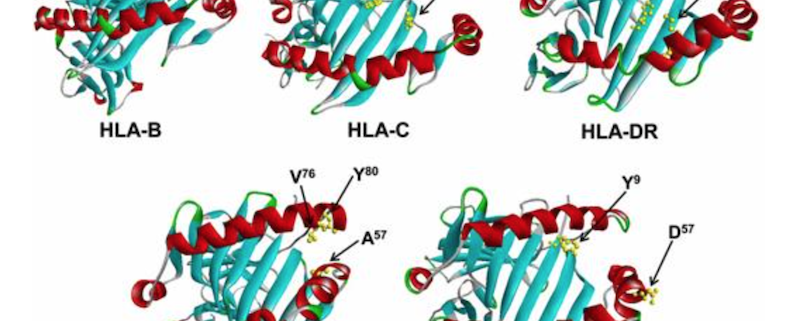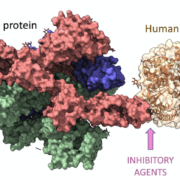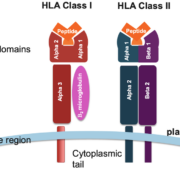Unraveling the Mysteries of HLA Typing: 3 Groundbreaking Allele Discoveries
Human Leukocyte Antigen (HLA) typing has revolutionized the fields of immunology, organ transplantation, and disease association research. It is a method for identifying the genetic variations in HLA genes that determine an individual’s unique immune response. In this in-depth blog post, we’ll explore three of the most famous allele discoveries related to the HLA genes, which have significantly advanced our understanding of the human immune system and continue to shape the future of personalized medicine.
HLA-B27: Unveiling the Link Between HLA Typing and Autoimmune Diseases
In the early 1970s, a groundbreaking discovery was made when scientists identified a strong association between HLA-B27 and ankylosing spondylitis (AS), a type of chronic inflammatory arthritis. This discovery revolutionized our understanding of autoimmune diseases and the role of HLA typing in identifying genetic susceptibilities.
HLA-B27 is an allele of the HLA-B gene, which codes for a protein that presents foreign antigens to immune cells. Approximately 90% of individuals with AS carry the HLA-B27 allele, compared to only 8% of the general population. This striking association has paved the way for further investigations into the role of HLA genes in autoimmune diseases, such as rheumatoid arthritis and multiple sclerosis.
By understanding the relationship between HLA typing and autoimmune diseases, researchers can develop targeted therapies and early diagnostic tools. Additionally, HLA-B27 typing has become an essential tool for assessing the risk of AS in individuals with a family history of the disease.
HLA-DQ2 and HLA-DQ8: Deciphering the Genetic Basis of Celiac Disease
Celiac disease is a chronic autoimmune disorder triggered by the ingestion of gluten, a protein found in wheat, barley, and rye. It affects approximately 1% of the global population, and can lead to a wide range of symptoms, including gastrointestinal distress, malnutrition, and increased risk of certain cancers.
In the 1990s, researchers identified the HLA-DQ2 and HLA-DQ8 alleles as key genetic risk factors for celiac disease. Approximately 95% of celiac patients carry one or both of these alleles, which are part of the HLA-DQ gene family. These genes encode proteins that bind to gluten-derived peptides and present them to immune cells, triggering an inflammatory response in genetically susceptible individuals.
The discovery of the HLA-DQ2 and HLA-DQ8 alleles has significantly improved our understanding of the genetic basis of celiac disease. It has also led to the development of HLA typing as a diagnostic tool to identify individuals at risk for the disease, enabling early intervention and personalized treatment plans.
HLA-G: Unraveling the Complexities of Immune Tolerance in Pregnancy
The HLA-G gene was first discovered in 1987 and has since been the subject of extensive research due to its unique role in immune tolerance during pregnancy. Unlike other HLA genes, which play a critical role in immune recognition and defense, HLA-G is primarily expressed at the maternal-fetal interface and contributes to the protection of the fetus from maternal immune responses.
Several alleles of the HLA-G gene have been identified, with some showing a strong association with pregnancy complications, such as preeclampsia and recurrent spontaneous abortion. This has led to a growing interest in HLA-G typing as a tool for predicting pregnancy outcomes and understanding the underlying mechanisms of immune tolerance in pregnancy.
The discovery of the HLA-G gene and its unique role in pregnancy has also sparked interest in its potential applications in other areas of medicine, such as cancer immunotherapy and transplantation. By modulating the immune response, HLA-G has the potential to be harnessed for therapeutic purposes, providing new avenues for personalized medicine and targeted therapies.
Conclusion
The discoveries of HLA-B27, HLA-DQ2, HLA-DQ8, and HLA-G have been instrumental in advancing our understanding of the complex relationships between HLA typing, immunity, and disease. These groundbreaking findings have not only provided insights into the genetic basis of autoimmune diseases and immune tolerance during pregnancy, but have also paved the way for the development of novel diagnostic tools and targeted therapies.
As research in the field of HLA typing continues to expand, we can expect further breakthroughs in our understanding of the immune system and the development of new strategies for personalized medicine. By harnessing the power of HLA typing, researchers and clinicians alike can work towards improving patient outcomes and revolutionizing the way we approach the diagnosis and treatment of a wide range of diseases.







 The Sequencing Center
The Sequencing Center

Leave a Reply
Want to join the discussion?Feel free to contribute!